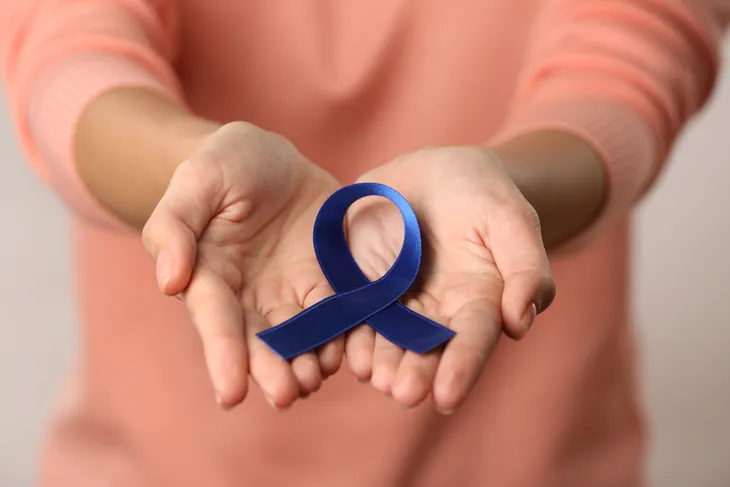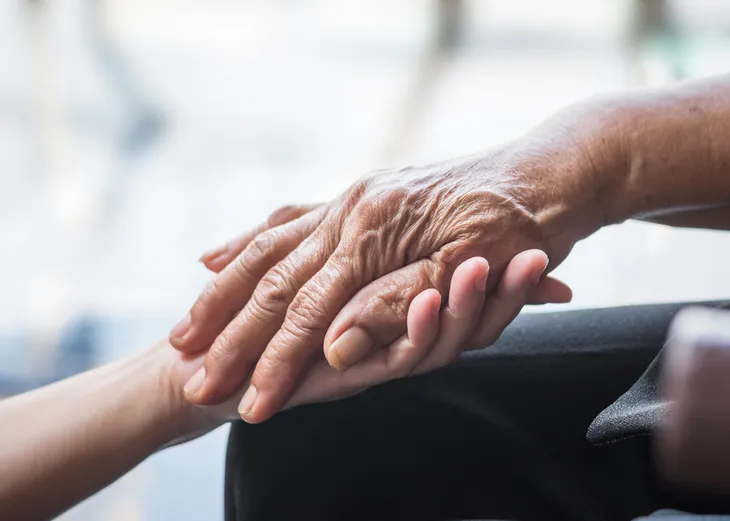People who drink coffee do it for a number of reasons. Not only do they love the taste of those rich, flavorful coffee beans, but there’s also the beautiful smell of freshly brewed coffee, exploring cool and trendy coffee shops, and of course, my personal favorite, the ritual of quietly sitting down every morning to enjoy a nice hot cup of coffee. As if that wasn’t enough, turns out there’s even more reason to enjoy drinking coffee!
Believe it or not, there is a convincing amount of evidence which shows that regularly indulging in a cup of joe may actually be good for your health in the long run. This assumes, of course, that you’re not polluting your coffee with oodles of heart-clogging cream and sweet, but deadly sugar. Cups of black coffee, on the other hand, look like a good bet when it comes to drinking something for your health.
Here’s a look into all the incredible health benefits of drinking coffee…
Decreased Mortality
To put it as broadly as possible, drinking coffee on a regular basis may actually reduce your chances of dying from every imaginable cause. That’s right. And there is a heap of evidence to back up that eyebrow-raising claim. More than 35 studies have been done covering more than 2 million people, all of which indicate coffee directly influences what one meta-study published in Public Health Nutrition calls “all-cause mortality.”
According to the study, light to moderate amounts of coffee is “associated with a reduced risk of death from all causes, particularly in women.” So what is it about coffee that links its consumption to reducing the risk of death? That part is still unclear, but the statistical association is clearly there. As for the amount of coffee per day, the study indicates that the benefits of coffee consumption increased slightly with greater intake. So those in the study that drank 3 to 5-cups a day saw more benefits than those that drank 1-cup a day.
Cardiovascular Health
Since cardiovascular disease is the leading cause of death for adult men and women in the United States, we should all be on the lookout for ways to combat it. Looks like a good place to start is with your morning cup of coffee. A meta-study that covered 36 studies and over 1 million participants was conducted to address the theory that coffee consumption was detrimental to cardiovascular health, a commonly held belief based on how caffeine seems to accelerate the heart rate.
The results published in a 2014 issue of Epidemiology and Prevention, found that drinking 3 to 5-cups a day not only wasn’t bad for cardiovascular health, in fact, it seemed to be good for it. They found that “moderate coffee consumption was inversely significantly associated with [cardiovascular disease],” which means that drinking 3 to 5-cups a day puts you in the group of people who face the lowest amount of risk from cardiovascular disease.
Colon Cancer Recovery
As the third most commonly diagnosed form of cancer, colon cancer killed over 50,000 people in the U.S. in 2014, according to a Colon Cancer Alliance estimate. A way to lower the number of those that die from this common form of cancer, alongside early detection, is drinking coffee. A new study published last week in the Journal of Clinical Oncology reports that drinking coffee while recovering from colon cancer seemed to improve the chances of a full recovery.
The patients that were part of the study all had Stage III colon cancer, which means that the cancer had spread to nearby lymph nodes, but not to the rest of the body. All the patients had successfully made it through surgery and chemotherapy. Once in recovery, those who drank 4 or more cups a day were 42-percent less likely to have the cancer come back and 33-percent less likely to die from the cancer than non-coffee drinkers.
Diabetes
Perhaps the fastest growing health problem of our time, diabetes afflicts about 30 million people in the U.S., nearly a tenth of the country’s population. Even worse is that with more than 1 million more people joining the ranks of diabetics every year, there seems to be little hope on the horizon for stopping the spread of this chronic and life-shortening condition. If only we had a magic elixir that could somehow safeguard against the development of diabetes…
Believe it or not, coffee might actually be exactly that. Habitual coffee drinking is associated with significantly lowering the chances of developing diabetes, specifically type 2. A meta-study published in 2005 in the Journal of the American Medical Association and a 2014 follow-up study published in Diabetes Care both state that there is an inverse relationship between coffee consumption and developing diabetes. This includes both regular and decaf blends of coffee.
Alzheimer’s Disease
The rampant anxiety over this brain disease that starts with bits of memory loss and ends with a total loss of the mind is not unfounded. More than 5 million people currently have Alzheimer’s and that number will double by 2050, according to the Center for Disease Control and Prevention. No cure is in the works and treatments generally yield mixed results.
Drinking coffee, however, may actually be a potential treatment of Alzheimer’s, according to a 2010 study published in the Journal of Alzheimer’s Disease. The study found that caffeine treatments in mice led to a lowering of the levels of Abeta, an abnormal protein believed to be responsible for Alzheimer’s. Not only did this treat Alzheimer’s, it also seemed to lower the chances of developing it at all. Additional studies have continued this line of research into how coffee might influence Alzheimer’s in humans and, while the jury is still out, positive evidence is accumulating.
Improve Brain Function
The reason most of us drink coffee is so that we can boost our energy first thing in the morning and help ourselves wake up. This is because coffee contains a stimulant known as caffeine — “the most commonly consumed psychoactive substance in the world. After you drink coffee, the caffeine is absorbed into your bloodstream. From there, it travels to your brain,” writes Healthline.
Coffee works to improve energy levels and brain function by blocking the inhibitory neurotransmitter adenosine. “When this happens, the amount of other neurotransmitters like norepinephrine and dopamine increases, leading to enhanced firing of neurons,” explains the source. There have been many studies in the past that show coffee can improve memory, mood, energy, and overall mental function.
May Lower Risk of Parkinson’s Disease
Healthline states that next to Alzheimer’s, Parkinson’s is the second most common neurodegenerative condition. In addition to boosting mental function and lowering the risk of Alzheimer’s, caffeine may also be able to lower the risk of Parkinson’s disease. Healthline writies, “Studies show that coffee drinkers have a much lower risk of Parkinson’s disease, with a risk reduction ranging from 32 to 60-percent.”
“For Parkinson’s disease, the data have always been very consistent: higher consumption of coffee is associated with decreased risk of Parkinson’s,” says Frank Hu, MD, MPH, PhD, nutrition and epidemiology professor at the Harvard School of Public Health to WebMD. While it’s still unclear why this happens, coffee seems to be the link.
Increase Physical Performance
Looking to get the most out of your workout? Try drinking some coffee the day of! Not only will it help you burn fat (we’ll get to that next), but it also increases the adrenaline levels in your blood which will give you more energy and exertion. “Caffeine breaks down body fat, making free fatty acids available as fuel,” notes Healthline.
According to studies, caffeine can improve physical performance by 11 to 12-percent. To get the best effects of coffee, the source advises having a cup of coffee about an hour before heading to the gym.
Help Burn Fat
We’re always looking for shortcuts to help us lose weight, and according to research, caffeine could help our body burn fat by having the same effect on the body as muscle contractions during exercise. Chatelaine writes that as long as the coffee isn’t consumed too late in the day, it could help “increase your endurance and boost your fat-burning potential, according to various studies.” Caffeine works to help burn fat by delaying the onset of muscle fatigue and helping the body use fat reserves as energy. This spares stored up energy and allows our energy to last longer which means we can also workout longer at the gym. Of course, experts do not recommend that people drink caffeine in lieu of exercise. You should still be exercising on a regular basis.
Men’s Journal also cites a 22-week study which looked at 16 overweight adults and found that “participants given green coffee bean extract had undergone significant weight loss with 37.5-percent of them transitioning from being at a pre-obesity weight to a normal weight range,” writes the source.
Reduce Risk of Liver Disease
Our liver is an extremely important organ that’s responsible for hundreds of different functions for the human body. As a result, it’s important we take good care of it! One of the easiest ways we can do that is by enjoying a cup of joe everyday.
There are many diseases that can affect the liver, including hepatitis, fatty liver disease, and many more. All of these conditions can lead to liver cirrhosis which causes the liver to be replaced by scar tissue. “Interestingly, coffee may protect against cirrhosis — people who drink 4 or more cups per day have up to an 80-percent lower risk,” explains Healthline.
May Lower Stroke Risk
In addition to its many other incredible health benefits like lowering the risk of liver disease, heart disease, and diabetes, coffee may also be able to lower the risk of stroke in women. One of the reasons it lowers this risk is by also lowering the risk for heart rhythm disturbances which are risk factors for stroke (and heart disease). WebMD cites a study of 130,000 Kaiser Permanente health plan members which found that those who drank 1 to 3-cups of coffee each day were 20-percent less likely to be hospitalized for abnormal heart rhythms (arrhythmias), as opposed to those who didn’t.
WebMD also explains how another 2009 study examined 83,700 nurses who drank two or more cups of coffee each day and were found to have a 20-percent lower risk of stroke than those who drank less or none at all. These results stayed the same regardless of other risk factors like high blood pressure, high cholesterol, and type 2 diabetes.
Protect Against Cancer
Cancer is a scary word. It ignites fear in most of us because we’ve all been affected by it somehow, either directly or through someone we know. Several different studies have found that long-term consumption of coffee may decrease our risk of developing cancer. One study cited by Chatelaine found that coffee could reduce the risk of endometrial cancer by up to 25-percent, and another study found that it reduces the risk of estrogen-receptor negative breast cancer. The source also notes to be sure to drink boiled coffee to reap these benefits because it contains more fatty acids. Fatty acids are what have been shown to inhibit the growth of cancer, says Chatelaine.
According to a study published in the American Journal of Epidemiology, people who drink at least one cup of caffeinated coffee a day are able to cut their risk of developing throat or mouth cancer. People who drink 1 or 2-cups a day can cut their risk by 20-percent, and people who drink 4 or more are able to cut that risk by up to 50-percent, says Eating Well.
Fight Depression
Researchers at the Harvard School of Public Health reviewed the findings from three separate studies with information from over 200,000 adults and found that “the risk of suicide for adults who drank 2 to 4-cups of caffeinated coffee per day was half that of those who drank decaf or little to no coffee,” writes Eating Well.
It’s believed that coffee helps fight depression by increasing neurotransmitters like serotonin, dopamine and noradrenaline in the brain. This means coffee can act as a mild antidepressant.
Reduce Pain
Do you feel achy and stiff? If you’re like me and work in an office sitting at a desk for the majority of the day, you likely suffer from a bit of everyday pain. This is because the body is not meant to be sitting for long periods of the day. Unfortunately, that’s the reality of our job. To help ease this pain, Norwegian researchers found that drinking coffee could decrease pain.
The 2012 study examined 48 people who work in an office and found that “those who consumed coffee only declared a pain-intensity level of 41, whereas participants who didn’t drink any coffee reported having a score of 55,” writes Men’s Journal.

















